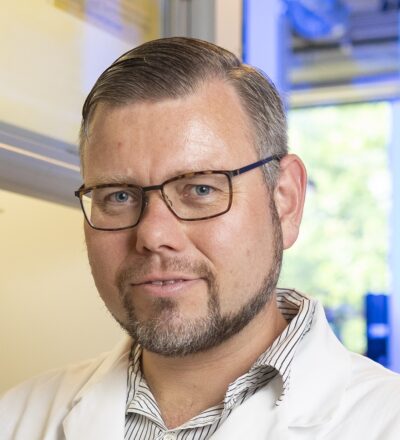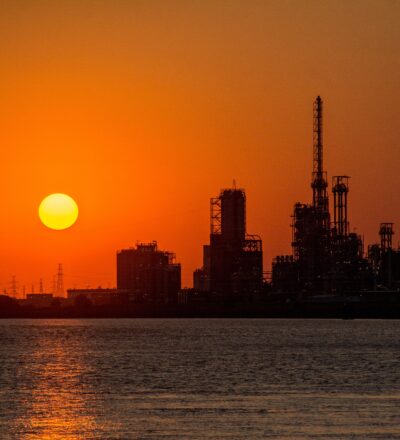Waste is valuable. Especially for the chemical industry, waste holds the potential to become an important feedstock. Producing bulk and platform chemicals from streams that are currently considered to be waste and incinerated or landfilled can strongly reduce CO2 emissions along product value chains in the Dutch Chemistry sector. Our ReBBloCS-project aims to tackle this challenge, by developing new circular value chains for the valorisation of complex and mixed waste streams into valuable chemical products using innovative conversion technologies.
In a recent article published by Afval Online, ISPT’s Boelo Schuur, highlights how the chemical sector can start to make its feedstock more sustainable by converting waste streams using innovative conversion technologies to serve as feedstock for the chemical industry.

Towards full circularity
The Netherlands has set a goal to transition to a fully circular economy by 2050. An ambitious goal, that poses a profound challenge to the Dutch industry, including to the chemical sector. At the moment, the Netherlands offers a vibrant home to over 2,000 chemical companies. In 2030, they need to achieve a reduction of 49% and twenty years later the goal is to be completely climate-neutral. To realise full circularity, Boelo Schuur states that raw materials from waste, biomass and eventually, possibly carbon monoxide (CO) and carbon dioxide (CO2), are the future for the chemical industry. He explains that the waste sector can supply raw materials to chemistry on a large scale, thereby developing new, circular value chains. However, the waste sector does not become the main-supplier of the chemical industry in a heart beat, Govert Buijze writes. There are still several bottlenecks – technological and legal – to overcome before this ideal can be realised.
Technological and Legal bottlenecks
Today, a large share of CO2 emissions by the chemical industry is related to the production of fossil-based chemicals. Boelo Schuur explains: “About 10 percent of the oil we take out of the ground worldwide is used in feedstock for materials. This is an immense amount, that cannot easily be replaced by waste. Today’s quantities of potential biobased/circular input streams to
are by far not enough to source the demand of the Dutch industry.”
“Besides, if we want to replace these fossil carbon atoms with carbon atoms from waste, e.g. from plastics, we need to ensure that these materials are recycled correctly. In the case of plastic, this means that the plastic that is not recycled mechanically, needs to be recycled chemically. A current challenge, is that such waste often holds too much impurities. Therefore, we need to find ways that make sure that the oil that comes out of the recycling processes is as clean as possible. A second problem with using waste materials as feedstock in a chemical process is liability. If something is wrong with the chemical company’s product, who is liable? As long as researchers are experimenting with the chemical recycling of waste in pilot plants, this does not pose a problem yet. But when chemical companies start using it on a commercial scale, there needs to be clarity about when something is waste and what obligations are attached.”
Complex waste streams
“The EU is encouraging producers of materials to make their products more recyclable by adding new layers of regulations. So hopefully, the first problem should decrease in the near future. However, the reality is that still enormous amounts of plastic waste will remain difficult to mechanically recycle for a long time to come. If we want this plan to succeed, the chemical industry will need all plastic waste available to make its feedstock sustainable in the coming decades. Yet, these quantities may be not enough to source the demand of the entire industry. It is therefore likely that we will have to source waste from abroad, if all Dutch chemical companies want to make their feedstock more sustainable.”
Therefore, the aim of the ReBBloCS-project is to efficiently use all available alternative, circular, and renewable feedstock. This also includes the so-called complex and wet waste streams, think of agro/food residues, mixed biomass/plastic, or waste from
sludges. These waste stream too can be converted by innovative technologies (based on hydrolysis, pyrolysis & gasification)
into new chemicals. This requires collaboration with all relevant stakeholders. From waste collectors, conversion technology providers, to knowledge institutes and actors from the industry itself. Every stakeholder is needed to find optimal valorisation routes for creating new building blocks out of waste streams. Thereby, we can hopefully close the cycle of complex waste streams by utilizing and valorizing them for feedstocks in the chemical industry.
Original interview was published in Vakblad Afval! May 2023 (nr 3) by author Govert Buijze.
Acknowledgement
This project is co-funded with subsidy from the Topsector Energy by the Ministry of Economic Affairs and Climate Policy.
